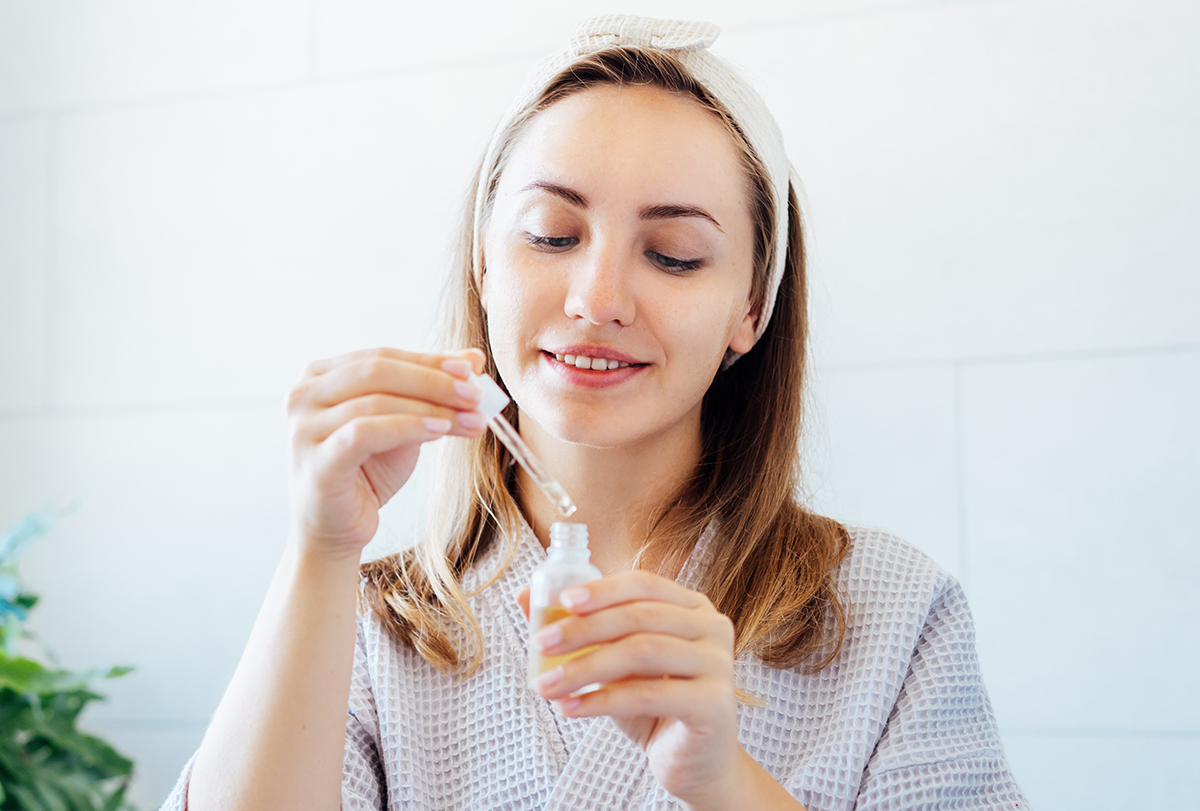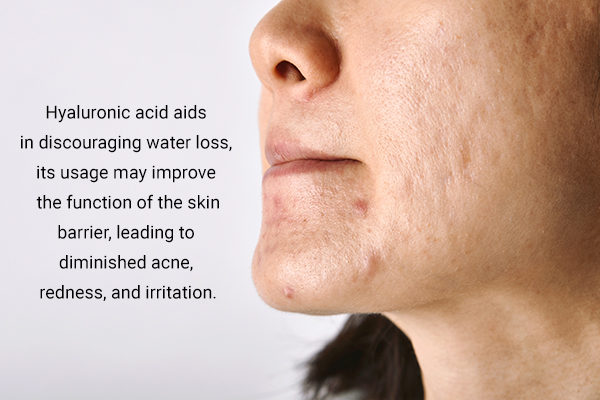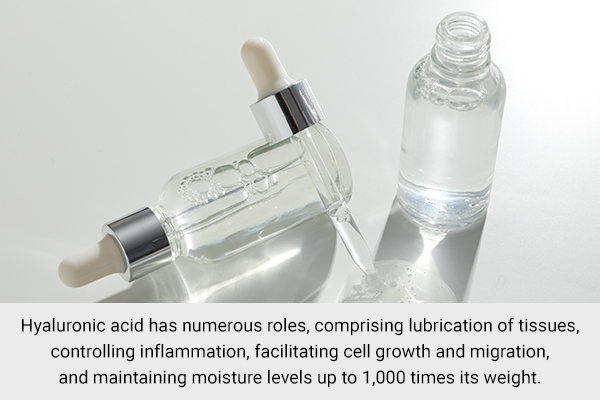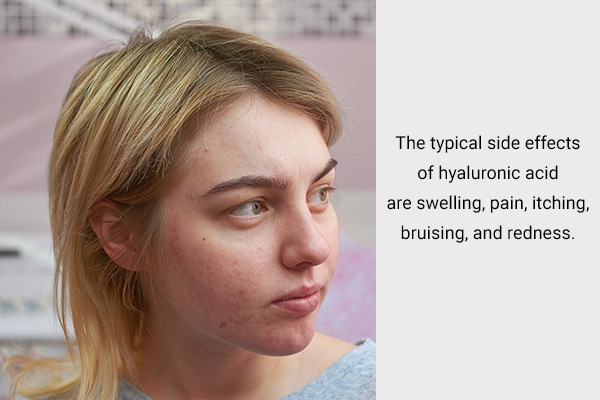In this article:
Acne is a skin condition that many people are familiar with; in fact, acne affects hundreds of thousands of people around the globe. It can be an unappealing and uncomfortable condition that can bother you and affect your self-esteem.

Many people pursue a myriad of treatment options for acne, including topical creams, oral drugs, and natural cures. One such treatment that has earned fame in recent times is hyaluronic acid.
The good news is that many experts and users have attested that hyaluronic acid can be very useful in managing acne problems. This acne-fighting action of hyaluronic can be attributed to its many effects such as skin barrier repair and sebum production control.
This article will elaborate on the role of hyaluronic acid in acne treatment and how it can assist you in improving your condition. Read on to find out.
How Does Hyaluronic Acid Improve Acne?
Hyaluronic acid may help with acne in several ways.
1. Hyaluronic acid regulates sebum production
Disproportionate oil production can be the cause of many kinds of acne. The sebaceous glands in the skin produce oil, also known as sebum, which is a greasy secretion that can plug up the pores and trigger breakouts.
Thus, controlling the overproduction of sebum is crucial to discourage pore clogging and, thus, help manage acne.
According to a study, hyaluronic acid is helpful not only in preserving skin moisture but also in controlling sebum production. Hence, it could be an advantageous ingredient for staving off acne. (1)
2. Hyaluronic acid enhances the skin barrier function

Individuals with acne may have a malfunctioning skin barrier. (2) The skin barrier has a vital role in shielding the skin from external facets such as sun exposure, natural stressors, and others.
When the barrier is degraded, skin problems can occur such as dryness and acne. (3)
As hyaluronic acid aids in discouraging water loss, its usage may improve the function of the skin barrier, leading to diminished acne, redness, and irritation. (4)
3. Hyaluronic acid treats acne scars
Hyaluronic acid may be valuable not only for dealing with acne but also for managing acne scars.
In one study, 12 participants obtained promising results from the use of hyaluronic acid gel for minimizing mild to severe acne scarring. The treatment involved administering 3 injections of the gel at 4-week gaps, and no untoward effects were noted by the participants. (5)
Another study illustrated that topical hyaluronic acid serum with CO2 laser resurfacing may ameliorate acne scars. The researchers observed that the combination therapy delivered better results than CO2 laser resurfacing alone, along with the benefits of quicker recovery time and fewer side effects. (6)
Expert Opinion on Hyaluronic Acid and Acne
Dermatologists claim that hyaluronic acid is an outstanding ingredient for acne-prone skin because it is noncomedogenic (does not obstruct pores) and enables the skin to maintain its moisture levels without making it oily or greasy.
Also, it can help ameliorate skin inflammation, which reduces the redness and irritation resulting from acne.
Other experts agree that hyaluronic acid is useful in hydrating the skin, which is critical in avoiding dryness and irritation, which can lead to breakouts.
What Is Hyaluronic Acid?

Hyaluronic acid is inherently found in the skin, joints, and eyes of the human body. It’s categorized as a glycosaminoglycan that aids in building and maintaining connective tissues.
Hyaluronic acid has numerous roles, comprising lubrication of tissues, controlling inflammation, facilitating cell growth and migration, and maintaining moisture levels up to 1,000 times its weight. (7)
Why Is Hyaluronic Acid a Skin Care Favorite?
To strengthen its health, the skin requires a precise amount of water, and inadequate hydration can result in dryness and flakiness, which lead to skin aging and damage.
Hyaluronic acid helps hydrate the skin, improving its texture, impression, and function. (8) For this reason, it is often employed in skin care products for its hydrating and plumping properties.
How to Use Hyaluronic Acid on the Skin
Hyaluronic acid serums are a famous option for treating acne. They should be used after rinsing the face, up to 2 times a day, and the use of a dropper is often recommended to discourage wastage.
To use hyaluronic acid:
- Take out a few drops onto your fingers and carefully pat them onto your skin.
- Once the serum is absorbed, you may use other products or end with a moisturizer.
Note: If you are using a hyaluronic acid moisturizer, use it as you usually would use a regular moisturizer.
Possible Side Effects of Using Hyaluronic Acid

The typical side effects of hyaluronic acid are swelling, pain, itching, bruising, and redness. These side effects are transient and usually resolve within a week. (9)
Most-Asked Questions
Is hyaluronic acid safe for acne-prone skin?
Yes, hyaluronic acid is safe for acne-prone skin.
How do I incorporate a hyaluronic acid serum into my skin care routine?
You can use a hyaluronic acid serum in your skin care routine by applying it after cleansing and toning, but before moisturizing.
Is hyaluronic acid safe for all skin types?
Although hyaluronic acid is considered safe for all skin types, it’s recommended to perform a patch test first before using it.
Final Word
If you have acne, hyaluronic acid is a great ingredient to try. It can help control oil buildup, improve your skin’s barrier function, and reduce scarring from acne. Plus, it provides other benefits such as hydration and antiaging.
Just be careful in its use and patch-test it first, and talk to a dermatologist to make sure it’s right for you. If you use it the right way, hyaluronic acid can help you get great skin.
- Was this article helpful?
- YES, THANKS!NOT REALLY


